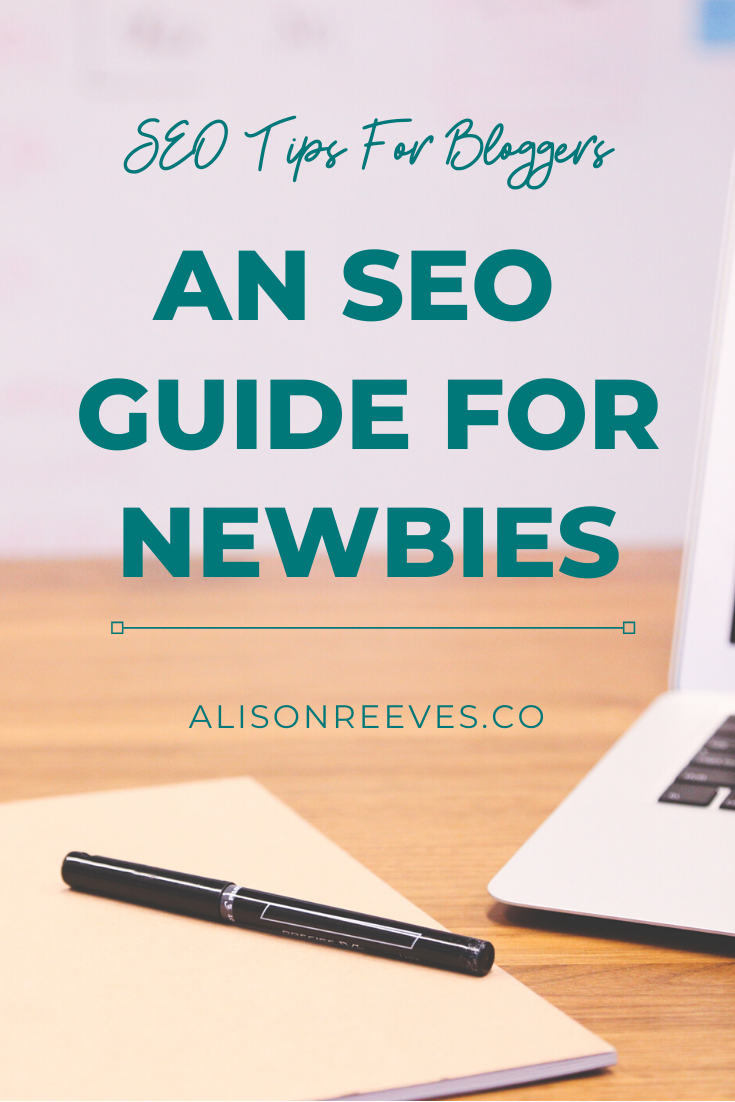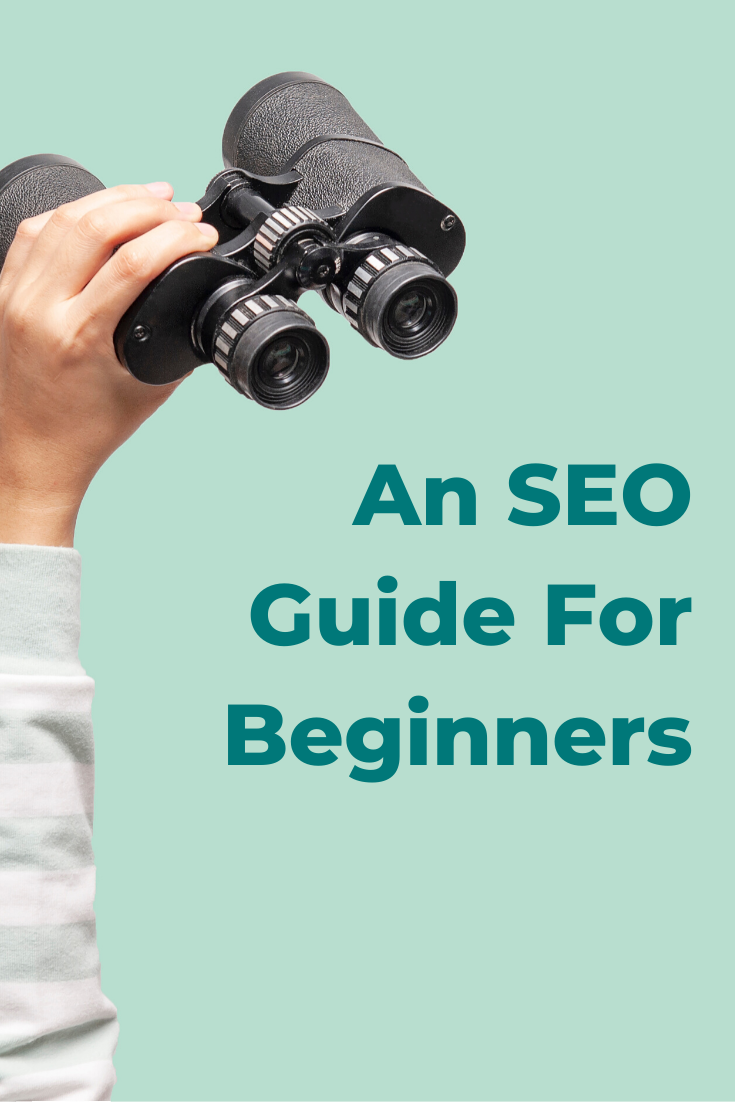Are you a blogger who needs a beginner’s guide to SEO? Below, I’ll break down the basics of what you need to know. There are many ways to get traffic and be found online, and SEO is a pretty important one.
Let’s jump in…
Beginner’s Guide to SEO: What is SEO?
First of all, what is SEO? SEO stands for Search Engine Optimization. Search engines, like Google and Bing, are sites people go to when they’re looking for information. When you write your blog posts with search engines in mind, you make it easier for people to find what they are looking for!
In short, SEO is the ability to affect the visibility of a website in a search engine’s unpaid (or “natural”) results through the use of keywords.
There are a few obvious benefits exist for utilizing SEO as a marketing strategy.
First off, it’s free. Secondly it can be learned by anyone! You don’t need to be a technically minded person to implement keywords to increase search results.

Beginner’s Guide to SEO: Common SEO Misconception
The goal of SEO isn’t just about increasing traffic…
Its about making sure you write your content for the people you WANT reading your site.
Here’s a quick example.
Just because Sally, an aspiring home-cook, puts the word “chef” on her page often and posts tons of recipes that people are attracted to does not mean she will generate the traffic she desires. She may attract other chefs, who likely wouldn’t be interested in her services. Sally isn’t really looking for chefs to visit her site, though. She wants other home makers like her to find her blog and read her approachable home recipes.
Summary: high traffic does not equal quality traffic or business success.
So, the best beginner’s SEO strategy involves a combination of not only search volume, but also understanding the language and pain points of the people you WANT on your website.
The goal is to generate the right kind of traffic. We want to…
- Be specific.
- Not focus on quantity…
- But on quality.
Don’t Compromise Content
Often articles or content geared solely at repeating a keyword end up stale or boring.
I recommend creating the content you know your visitors are interested in. Start with what you know you want to publish, and integrate your SEO after. This will keep your content as interesting and specific as you intended.
- Establish your site
- Create content you know your consumers are looking for
- Integrate keywords to increase specific traffic
What Are Long Tail Keywords?
This is what entrepreneurs should be focused on: long tail keywords. Long tail keywords lengthen the search term to create more specific results. Hyper-localized businesses benefit from being precise, not succinct or general.
If you are doing a Google search for “houses” your results will be endless and probably fruitless.
Using “Houses in Houston, TX” yields much more specific results.
Even better, “houses in The Heights” or “houses under $100,000 in 77059.”
The more specific you are, the narrower your results will be, and the more popular you will rank among those searching for particular information. These are the types of keywords we want to integrate into our SEO goals.
So, instead of Sally optimizing her post for “chefs”, she could optimize for “easy home recipes.” Better yet, she could optimize for “easy home recipes for moms.”
Make sense?
Where To Put Your Keywords
Great question.
As I suggested earlier, write the content you know you’re interested in posting and weave in keywords later to avoid compromising material. Here are some areas you want your keywords to appear:
- The title of the article
- The first paragraph
- Alt tag of a photo
- Subheadings of the article
- Make sure your URL is clean and simple (Letters and numbers only. Avoid underscores and punctuation; they make you less search engine friendly.)
Links
Backlinks, in which another website sources yours, are incomparable in increasing your SEO ranking.
Anyone can integrate keywords, but when other people or blogs mention you? It definitely adds a boost of legitimacy and authority to your content.
How do you get other websites to post your link?
Here are a few simple suggestions.
- Creating content people find interesting
- As a real estate agent it may be helpful to think local; how can I help my community?
- Making your content original: of dissenting opinion, controversial or containing original research
- Contacting a site who has posted a competitor’s link and telling them why your content is important
- Creating incentives to post your link
Need to SEO your blog posts, but aren’t using WordPress? Find out how here.








